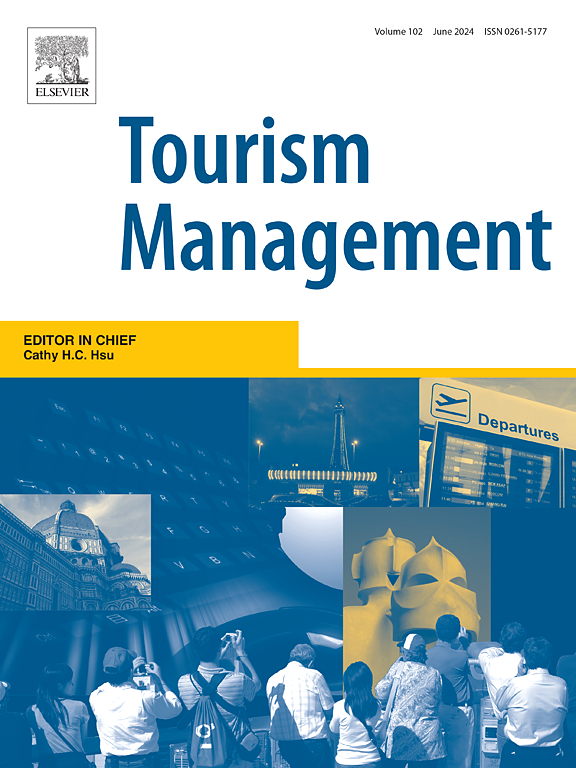Do managerial responses influence traveller retention?
IF 12.4
1区 管理学
Q1 ENVIRONMENTAL STUDIES
引用次数: 0
Abstract
With the growing influence of travel review platforms, management responses to online reviews have gained increasing relevance for hotel online reputation management. While previous research has explored the impact of responding on subsequent ratings, there is limited understanding of how response characteristics influence guests’ decision to revisit, particularly for initially satisfied versus dissatisfied customers. This study investigates the influence of five key response attributes — response length, diversity, personalisation (topic consistency between the review and response), linguistic style matching (LSM), and sentiment polarity — on customer retention (revisit decision). Using review and response data from over 1,000 hotels on TripAdvisor, we employ text analysis to categorise response attributes and assess their effect on guest retention. Our findings reveal that response length, diversity, LSM, and sentiment positively influence customer retention. However, while response length, LSM, and diversity have a stronger positive impact on satisfied customers, they may negatively affect dissatisfied guests. Additionally, topic personalisation is found to have a negative influence, particularly among dissatisfied travellers. These insights offer practical guidance for hotel managers on writing responses that enhance customer retention by adopting an effective linguistic style.
管理层的反应会影响旅行者的留存率吗?
随着旅游评论平台的影响力越来越大,管理层对在线评论的反应与酒店在线声誉管理的相关性越来越大。虽然之前的研究已经探讨了回应对随后评级的影响,但对回应特征如何影响客人再次光顾的决定的理解有限,特别是对于最初满意的顾客和不满意的顾客。本研究调查了五个关键回应属性——回应长度、多样性、个性化(评论和回应之间的主题一致性)、语言风格匹配(LSM)和情感极性——对客户保留率(重访决策)的影响。我们利用TripAdvisor上1000多家酒店的评论和回复数据,采用文本分析对回复属性进行分类,并评估其对客人留存率的影响。我们的研究结果表明,响应长度、多样性、LSM和情绪对客户保留率有积极影响。然而,虽然响应长度、LSM和多样性对满意的顾客有更强的积极影响,但它们可能会对不满意的顾客产生负面影响。此外,主题个性化被发现有负面影响,特别是在不满意的旅行者中。这些见解为酒店经理在撰写回复时提供了实用的指导,通过采用有效的语言风格来提高客户保留率。
本文章由计算机程序翻译,如有差异,请以英文原文为准。
求助全文
约1分钟内获得全文
求助全文
来源期刊

Tourism Management
Multiple-
CiteScore
24.10
自引率
7.90%
发文量
190
审稿时长
45 days
期刊介绍:
Tourism Management, the preeminent scholarly journal, concentrates on the comprehensive management aspects, encompassing planning and policy, within the realm of travel and tourism. Adopting an interdisciplinary perspective, the journal delves into international, national, and regional tourism, addressing various management challenges. Its content mirrors this integrative approach, featuring primary research articles, progress in tourism research, case studies, research notes, discussions on current issues, and book reviews. Emphasizing scholarly rigor, all published papers are expected to contribute to theoretical and/or methodological advancements while offering specific insights relevant to tourism management and policy.
 求助内容:
求助内容: 应助结果提醒方式:
应助结果提醒方式:


